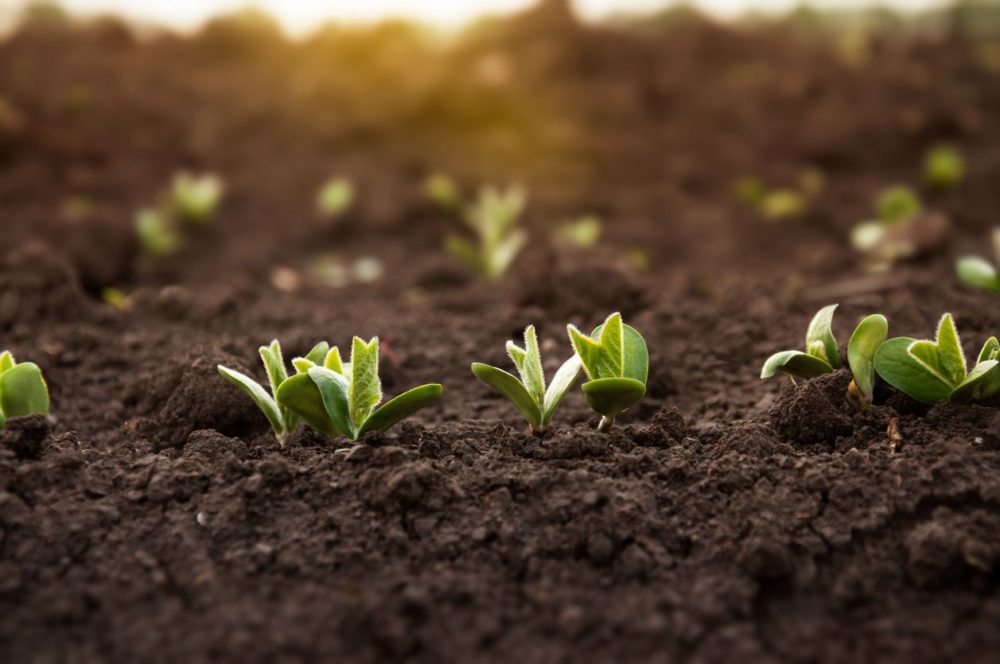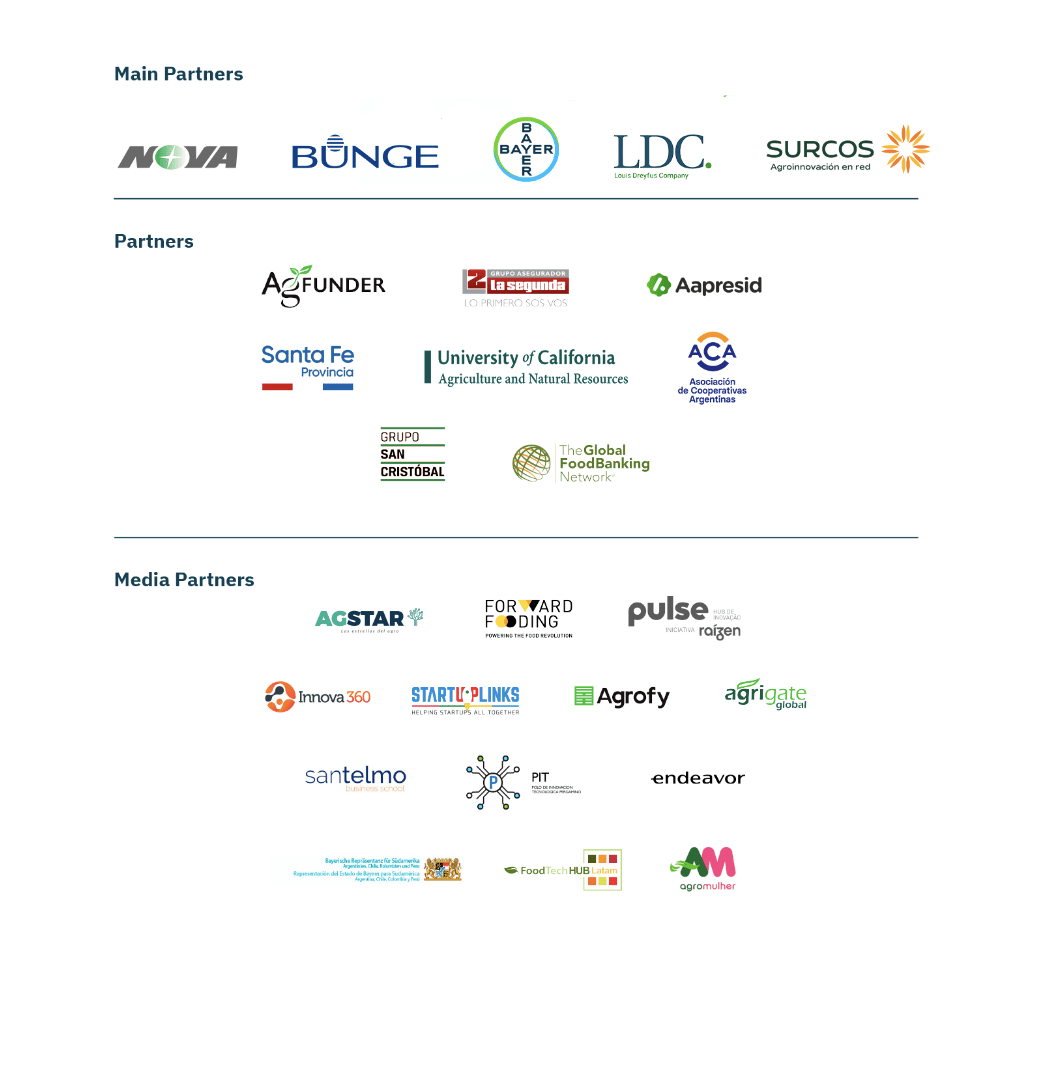Mexican soil biotech, Brazilian food waste and Chilean sustainable drinks companies won awards at the GLOCAL Game Changers LatAm Series 2022 pitch day last month.
Solena, a soil microbiome-focused biotech company, was the jury’s choice, while b4waste won votes from the GLOCAL team and Frankles was the audience winner.
GLOCAL’s Game Changers Final Pitch Day was held last month. Ten startups pitched their projects to an audience of 250-plus people and a jury of experts from the agrifoodtech sector including:
- Laura Zaim, Director – Louis Dreyfus Company Ventures
- Matías Flynn, Issues Management Cono Sur – Bayer Crop Science
- Braian Souto, Global Digital Office Sr Manager – Bunge
- Javier Gatius, Chief Financial Officer – NOVA
- Martín Burlo, Investor Relations & Corporate Venture Director – Surcos
- Hernán Castro, Chief Financial Officer – GLOCAL
As a B Corp fund, GLOCAL seeks startups that provide real solutions for the agrifood industry and that contribute to sustainable practices for a better future.
Being able to work together — both with startups and the large companies in the sector that participated as a jury — is a way to continue strengthening the agrifoodtech ecosystem in Latin America and discover the future disruptors of the industry that will provide solutions from the field to the table for a better world.
Meet the finalists:
Soil management and plague prevention startups:
Elytron: The Argentinian startup develops bio-pesticides based on microorganisms. Its technology serves to develop maximum efficiency products with great application in the field. These bio-pesticides attack plagues from a bioinformatic platform based on deep knowledge of crops, insects and microorganism, and the interaction among them. ‘According to FAO, 40% of crops are lost to plagues and chemical products are presenting more and more limitations,’ says company CEO Ana Indart.
Solena: This Mexican biotech company helps farmers understand and unlock access to soil microbiota. Its platform, Prometeo, helps farmers obtain information from the soil and transform it into valuable insights through artificial intelligence. ‘Our vision is to help make it possible to control the microbiology of the soil, which is the fundamental key to intensive agriculture and at the same time to harmony with nature,’ said CEO Irving Rivera.
Cromai: Brazilian startup Cromai uses computer science to obtain information from the field to generate more efficient agro-economic management. The company’s technology results in fewer CO2 emissions due to a 66% reduction in the operating time of tractors and an 85% reduction in the use of herbicides.
Agroforestry Carbon: The company’s solution aims to offset carbon emissions by promoting agroforestry systems of small agricultural producers through data science and geo-technology, and to give transparency and traceability to these offsets. ‘We recover degraded areas while producing food. This practice increases productivity in each area and improves soil quality, thus increasing biodiversity and small farmers’ quality of life,’ explains CEO Gabriel Neto CEO.
Agrifood supply chain and foreign trade startups:
Selaski: This Chilean startup’s innovative solution for international trade consists of an ERP SaaS for clients to centralize all international trade information. The platform provides a way to merge all processes into a single entity.
FinanEx: This Mexican startup works on shortening distances by improving logistics, foreign trade and financing to bring parties closer together. The company aims to create an easier, more agile and transparent importation process when it comes to producers exporting their products. ‘Our great advantage is the simplicity that comes from our algorithm, it is a simple process that helps the exporter to boost their exports when they have less time,’ explains CEO Ignacio Arambarri.
Other agrifoodtech verticals:
Parcela: The Colombian startup seeks to leverage technology and advanced analytics to develop a more agile and transparent commercialization channel. The platform generates algorithms and forecasts based on machine learning to connect producers and retailers in advance, thus eliminating intermediation.
Vibran: This Colombian startup aims to increase direct sales and improve operational efficiency by means of acquiring brands and rapidly expanding their delivery businesses. Some benefits of this route include generating more employment and increasing opportunities for brands. ‘An end-to-end platform that makes it possible to get, optimize and escalate brands that sell through delivery apps,’ says company CEO Julian Jattin.
b4waste: The Brazilian startup wants to fight food waste by using technology to sell leftovers from food industries to consumers. Luciano Kleiman, its CEO, emphasizes the important role the platform plays by connecting companies with surplus food to buyers (companies or people) for fast consumption, with a 50% discount. It is advantageous for all parties involved: companies, consumers and the planet.
Frankles: This Chilean startup seeks to ‘give naturalness back to beverages’ by generating state-of-the-art sustainable ingredients through its technological platform to extract natural material molecules without using toxic solvents. CEO Francisca Schafer started her pitch by asking, ‘How can a drink be truly sustainable if the ingredients are still being produced following a chemical approach?’






